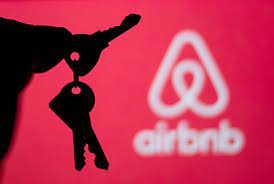Now Reading: 8 Helpful Insights on Airbnb Income Taxation
-
01
8 Helpful Insights on Airbnb Income Taxation
8 Helpful Insights on Airbnb Income Taxation

Table of Contents
Airbnb Income Taxation: Dubai’s real estate market, a magnet for U.S. investors with 6-8% rental yields and no capital gains tax, thrives on short-term rentals through platforms like Airbnb, fueled by 17.15 million visitors in 2024. With a forecasted 15% price decline in H2 2025 per Fitch Ratings, Airbnb rentals in prime areas like Dubai Marina and Downtown Dubai offer 8-10% yields, outpacing long-term leases.
However, navigating taxation on Airbnb income is critical, especially under the UAE’s corporate tax regime (Federal Decree-Law No. 47 of 2022) and U.S. tax obligations. This guide, written in clear, SEO-friendly language with an engaging tone, provides eight helpful insights on Airbnb income taxation for U.S. expats in Dubai’s real estate market, supported by data, legal considerations, and risk analysis.
8 Helpful Insights on Airbnb Income Taxation

1. No UAE Personal Income Tax on Airbnb Earnings
The UAE imposes no personal income tax, meaning individual U.S. investors renting properties via Airbnb face no UAE tax on rental income, whether residential or commercial, per the Federal Tax Authority (FTA).
- Implication: 100% of Airbnb income is tax-free in the UAE, boosting net returns compared to U.S. long-term rental yields (4-6%).
- Investor Action: Rent out properties like JVC apartments (from AED 600,000) on Airbnb for 7-8% yields, retaining full income.
- Example: A AED 1 million JVC unit earning AED 80,000 annually via Airbnb incurs no UAE tax, saving USD 21,770 versus U.S. taxes (up to 37%).
- Source: Check FTA guidelines.
2. Corporate Tax Applies to Business Entities
If Airbnb rentals are managed through a UAE company (e.g., a free zone entity in DMCC), income is subject to a 9% corporate tax on taxable income above AED 375,000 (USD 102,096), unless the entity qualifies as a Qualifying Free Zone Person (QFZP) with 0% tax, per PwC.
- Implication: Corporate structures require careful planning to minimize tax liability.
- Investor Action: Set up a QFZP in DMCC to manage Airbnb properties, ensuring compliance (e.g., adequate substance, no mainland transactions) for 0% tax. Register by March 31, 2025, for 2024 activities.
- Example: A DMCC company earning AED 1 million in Airbnb income pays 0% tax as a QFZP, saving AED 58,050 (9% on AED 625,000 taxable income).
- Source: Verify QFZP rules.
3. Residential Airbnb Income Exempt from Corporate Tax
Rental income from residential properties, even via Airbnb, is considered non-commercial and exempt from UAE corporate tax, even for companies, per Lexology.
- Implication: U.S. investors using corporate entities for residential Airbnb rentals avoid UAE tax, enhancing returns.
- Investor Action: Invest in residential units in Dubai Marina (from AED 1.2 million) for 8-10% Airbnb yields, ensuring properties are classified as residential with DLD.
- Example: A AED 1.8 million Marina Shores unit earning AED 180,000 annually via Airbnb incurs no corporate tax, preserving USD 49,013 in income.
- Source: Confirm exemptions.
4. U.S. Tax Obligations on Worldwide Income
U.S. expats must report Airbnb income to the IRS under FATCA, taxed at ordinary income rates (10-37%) based on total income. Foreign Tax Credits (FTC) can offset UAE corporate tax paid (if any), per Bright!Tax.
- Implication: U.S. taxes reduce net returns, but FTC mitigates double taxation.
- Investor Action: File Form 1116 to claim FTC for any UAE corporate tax (e.g., from commercial Airbnb rentals). Use Foreign Earned Income Exclusion (FEIE, USD 130,000 in 2025) if resident in UAE for 330 days.
- Example: A USD 50,000 Airbnb income taxed at 24% (USD 12,000) is offset by USD 2,450 FTC from AED 9,000 UAE tax, reducing U.S. liability to USD 9,550.
- Source: Consult IRS guidelines or advisors.
5. 5% VAT on Commercial Airbnb Rentals

Commercial properties (e.g., serviced apartments) rented via Airbnb are subject to 5% VAT, recoverable if the business is VAT-registered. Residential Airbnb rentals are exempt, per FTA.
- Implication: VAT adds costs for commercial rentals but is neutral for registered businesses.
- Investor Action: Register for VAT if managing commercial properties in Business Bay (from AED 800,000), recovering input VAT on expenses like maintenance. Ensure residential properties are VAT-exempt.
- Example: A AED 100,000 commercial Airbnb income incurs AED 5,000 VAT, fully recoverable, versus no VAT on a AED 122,400 residential income.
- Source: Check VAT rules at FTA.
6. Small Business Relief for Low-Revenue Entities
UAE businesses with annual revenue below AED 3 million (USD 816,771) qualify for Small Business Relief until December 31, 2026, treating income as non-taxable at 0%, per Reed Smith.
- Implication: Small-scale Airbnb operators avoid corporate tax, ideal for individual investors.
- Investor Action: Structure Airbnb rentals through a UAE entity with revenue under AED 3 million, filing simplified returns by September 30, 2025, for 2024.
- Example: A JVC unit earning AED 80,000 annually via Airbnb incurs no tax under Small Business Relief, saving AED 4,050 (9% on AED 45,000 taxable income).
- Source: Verify eligibility.
7. Deductible Expenses Reduce Taxable Income
Both UAE and U.S. tax systems allow deductions for Airbnb-related expenses, such as property management fees, utilities, service charges (AED 15-25 per sq. ft.), and marketing, per PwC and IRS guidelines.
- Implication: Deductions lower taxable income, increasing net returns.
- Investor Action: Track expenses like AED 20,000 service charges for a 1,000 sq. ft. Dubai Marina unit. In the UAE, deduct from corporate tax calculations; in the U.S., report on Schedule E.
- Example: A AED 180,000 Airbnb income with AED 50,000 expenses reduces UAE taxable income to AED 130,000 (no tax if QFZP) and U.S. taxable income to USD 35,374, saving USD 13,092 at 37%.
- Source: Use platforms like Bayut to estimate costs.
8. Compliance Deadlines to Avoid Penalties
UAE corporate tax compliance is critical for Airbnb businesses. Key 2025 deadlines include March 31 for natural person registration, September 30 for January–December 2024 tax returns, and ongoing VAT filings (quarterly for revenues above AED 187.5 million), per FTA.
- Implication: Missing deadlines incurs penalties (AED 10,000 for late registration, AED 500-1,000 monthly for late filings), eroding profits.
- Investor Action: Register for corporate tax within three months of starting a business. File returns via Emara Tax, maintaining records for seven years. Use advisors.
- Example: A U.S. expat registers a DMCC Airbnb business by March 31, 2025, avoiding AED 10,000 fines and securing 0% tax as a QFZP.
- Source: Monitor deadlines.
Legal Considerations for U.S. Expats
- UAE Tax Framework:
- Corporate Tax: 9% on taxable income above AED 375,000, with 0% for QFZPs or Small Business Relief. Residential Airbnb income is exempt.
- VAT: 5% on commercial rentals, recoverable for VAT-registered businesses. Residential rentals are exempt.
- Compliance: Register for corporate tax by March 31, 2025, for natural persons with AED 1 million turnover. File returns within nine months of fiscal year-end (e.g., September 30, 2025). Penalties: AED 10,000 for late registration, AED 500-1,000 monthly for late filings.
- Tourism Fee: 6% of rental income, payable to Dubai Tourism for Airbnb listings.
- U.S. Tax Framework:
- Reporting: Declare worldwide income under FATCA via Forms 8858, 1116, and Schedule E. Airbnb income taxed at 10-37%.
- FTC: Offset U.S. tax with UAE corporate tax paid.
- FEIE: Exclude USD 130,000 of earned income if resident in UAE for 330 days.
- Freehold Ownership: U.S. investors can own properties in freehold zones (e.g., Dubai Marina, JVC), registered with DLD.
- Golden Visa: Properties worth AED 2 million qualify for a 10-year visa.
- Transaction Fees: 4% DLD fee (split with seller), 2% agency fee, AED 540-4,200 registration fees.
Risks and Mitigation
- Oversupply: 210,000–250,000 units by 2026 may soften Airbnb rates. Focus on prime areas like Dubai Marina for 8-10% yields.
- Compliance Errors: Missing UAE deadlines or misclassifying income risks penalties. Use advisors like Farahat & Co..
- U.S. Tax Complexity: IRS audits are stringent. File accurate returns with FTC or FEIE, consulting U.S. tax professionals.
- VAT Recovery Delays: Slow VAT refunds impact cash flow. Ensure timely filings and proper documentation.
- Market Volatility: U.S. interest rates (6-7% as of June 2025) may curb demand. Dubai’s tourism and Golden Visa program sustain Airbnb appeal.
Step-by-Step Guide for U.S. Investors
- Assess Tax Structure: Determine if Airbnb rentals will be personal (no UAE tax) or corporate (QFZP or 0% Small Business Relief).
- Register for Tax: Natural persons with AED 1 million turnover register by March 31, 2025; new businesses within three months of incorporation via EmaraTax.
- Track Income: Record Airbnb earnings and expenses (e.g., service charges, marketing) for deductions.
- File UAE Returns: Submit corporate tax returns by September 30, 2025, for January–December 2024, claiming exemptions or deductions via EmaraTax.
- File U.S. Taxes: Report Airbnb income on Schedule E, claiming FTC or FEIE via Forms 1116 and 2555, consulting a tax advisor.
- Invest Strategically: Target Dubai Marina or JVC properties for 8-10% Airbnb yields, ensuring DLD compliance for residential status.
- Pay Tourism Fee: Budget 6% of Airbnb income for Dubai Tourism fees, filed monthly.
- Monitor Compliance: Review FTA updates and maintain records for seven years to avoid AED 10,000 penalties.
Conclusion
Airbnb income taxation in Dubai offers U.S. investors significant advantages, with no UAE tax personal income tax, residential rental exemptions, and 0% corporate tax for QFZPs or small businesses, despite U.S. tax obligations (10-37%). By leveraging deductions, FTC, and compliance with 2025 deadlines (e.g., March 31 for registration, September 30 for filings), investors can maximize 8-10% yields in prime areas like Dubai Marina, even amidst a 15% price decline forecast. Mitigate risks like oversupply and compliance errors with advisors. watch more
read more : 5 Smart Ways to Leverage R&D Tax Credits in 2025





















